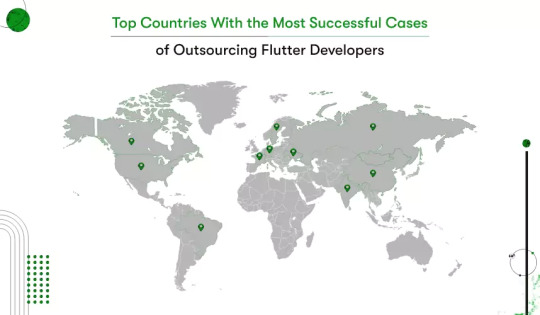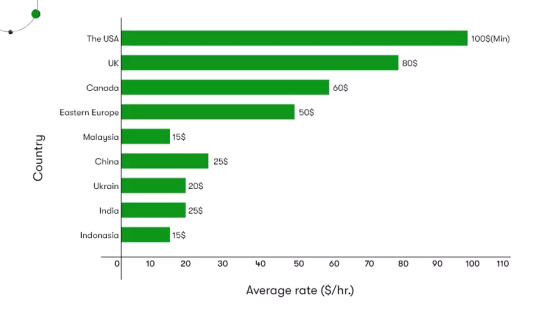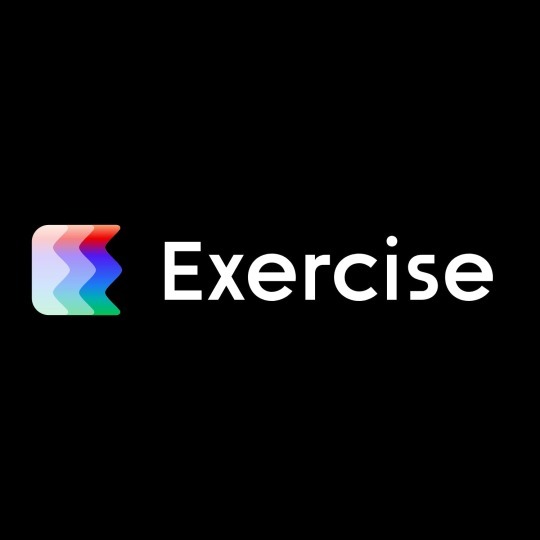#flutter app widgets
Explore tagged Tumblr posts
Text
Embarking on a Flutter journey? Brace yourself for a deep dive into the intriguing world of widgets, where we unravel the tale of Stateful and Stateless widgets in Flutter app development services.
In Flutter, widgets serve as the fundamental building blocks of user interfaces. The clear distinction between stateful and stateless widgets in Flutter app development empowers developers to architect applications precisely, optimizing performance and resource utilization.
0 notes
Text
#Best flutter app development company#Custom Widgets in Flutter#Enhancing flutter app performance#Flutter widget customization techniques#implementing custom widgets in Flutter#Performance Optimization in Flutter#Widget Customization in flutter
0 notes
Text
How to Hire Flutter Developers? [Includes 50 Questions For the Interview] by Kody Technolab Ltd

In the rapidly evolving realm of mobile application development, Flutter has emerged as a frontrunner, thanks to its ability to facilitate the creation of natively compiled applications for mobile, web, and desktop from a single codebase. This Google-developed UI toolkit has gained significant traction among businesses looking to streamline their app development processes. Consequently, the demand for skilled Flutter developers has skyrocketed, prompting companies to refine their hiring strategies. If you’re on the lookout to hire Flutter developers, this blog post, brought to you with insights from Kody Technolab Ltd, a leading Flutter Development Company in India, will serve as your comprehensive guide.
Why Hire Flutter Developers?
Before diving into the hiring process, it’s crucial to understand the value Flutter developers bring to your project. They possess the expertise to build high-performance, visually appealing applications that provide a seamless user experience across multiple platforms. By hiring dedicated Flutter app developers, businesses can significantly reduce development time and costs while ensuring their applications are scalable, maintainable, and aligned with their strategic goals.

Where to Find Flutter Developers?
Flutter developers for hire can be found across various platforms, including freelance websites, professional networks, and specialized Flutter development companies. Hiring Flutter developers from India offers a blend of technical proficiency, cost-effectiveness, and flexibility, making it a favored option for many businesses globally. Companies like Kody Technolab Ltd not only provide Flutter development services but also allow businesses to hire dedicated Flutter app developers, ensuring projects are handled by experts tailored to their specific requirements.
How to Evaluate Flutter Developers?
Evaluating potential hires is a critical step in ensuring you get the right talent for your project. This involves assessing their technical skills, project experience, and soft skills. When you hire Flutter app developers, consider their proficiency in Dart (the programming language used by Flutter), their understanding of Flutter widgets, and their experience in building and deploying cross-platform apps. Additionally, evaluating their problem-solving abilities, communication skills, and adaptability to changing project demands is equally important.

50 Questions for the Interview
To streamline your interview process, here’s a comprehensive list of questions you can ask when hiring Flutter developers:
Basic Understanding:
What is Flutter and why use it over other frameworks?
Explain the architecture of Flutter.
What is Dart and its significance in Flutter development?
Technical Proficiency:
How do you manage state in Flutter applications?
Describe the widget lifecycle in Flutter.
What are keys in Flutter and why are they important?
Explain hot reload and hot restart. What’s the difference?
Flutter UI and Design:
How do you create custom widgets in Flutter?
Discuss the role of ThemeData in Flutter.
How do you handle responsiveness in Flutter applications?
Flutter and External Resources:
Explain how you integrate REST APIs in a Flutter app.
How do you implement local databases in Flutter? Discuss SQLite and Hive.
Describe the process of adding third-party plugins to a Flutter project.
Advanced Flutter Concepts:
How do you use streams and futures in Flutter?
Explain the concept of BLoC (Business Logic Component) in Flutter.
What are mixins in Dart, and how do they benefit Flutter development?
Testing and Deployment:
How do you test Flutter applications?
Discuss the process of deploying a Flutter app to the iOS App Store and Google Play Store.
Experience and Projects:
Share a challenging project you’ve worked on. How did you address the challenges?
How do you stay updated with new developments in Flutter?
Soft Skills:
How do you manage tight deadlines in project development?
Describe a situation where you had to work closely with designers. How did you ensure effective collaboration?
This list is not exhaustive but covers the essential areas to help you gauge the competency and fit of potential Flutter developers for your project.

Conclusion
Hiring the right Flutter developer is a strategic decision that can significantly impact the success of your mobile application development project. By focusing on a combination of technical skills, project experience, and soft skills, you can identify candidates who are well-suited to meet your project’s requirements. Kody Technolab Ltd, with its extensive experience in Flutter application development services, stands as a testament to the potential of hiring skilled Flutter developers to bring your app ideas to life. Whether you’re looking to hire Flutter app developers, full-stack Flutter developers, or remote Flutter programmers, the guidelines and questions outlined in this post will assist you in making informed hiring decisions.
Remember, the key to successful Flutter development lies not only in technical expertise but also in a developer’s ability to adapt, communicate effectively, and understand the broader business context of their work. Choose wisely, and your Flutter project will be well on its way to success.

1 note
·
View note
Text
10 Essential Tips for Developing a Flutter Application
Introduction Flutter has gained immense popularity among developers, thanks to its ability to build high-performance, cross-platform mobile applications. Whether you are a beginner or a seasoned developer, it’s important to follow best practices and understand the key aspects of Flutter development to create top-notch applications. 1. Understand the Widget Hierarchy In Flutter, everything is a…

View On WordPress
#Cross-Platform#cross-platform development#Dart#dart programming#development tips#Flutter#Flutter Development#flutter tips#Mobile App Development#performance#State Management#UI#user interface#widgets
0 notes
Text
Boost your Flutter app's performance with these 9+ effective optimization techniques. 🚀💻
From widget optimization to code splitting, we've got you covered!
1 note
·
View note
Text
Techniques in Flutter

Discover the advanced theming techniques in Flutter with our latest blog post! This comprehensive guide dives into the nuances of creating visually appealing and highly customizable applications. Learn how to implement themes, manage styles effectively, and leverage Flutter's built-in capabilities to enhance user experience. Whether you're a beginner or an experienced developer, this post provides valuable insights and practical tips to elevate your Flutter projects. Check it out now!
In this article, we cover essential concepts such as implementing light and dark themes, using theme data effectively, and managing styles for widgets. You'll also learn how to create reusable styles and explore best practices for maintaining a clean and organized codebase.
Whether you're a beginner looking to enhance your skills or an experienced developer aiming to refine your projects, this guide offers valuable insights and practical tips. Dive into the world of Flutter theming and elevate your app development to the next level!
4 notes
·
View notes
Text
Flutter
Flutter is an open-source UI software development kit (SDK) created by Google. It allows developers to build natively compiled applications for mobile, web, and desktop from a single codebase. With Flutter, you can create visually rich and highly performant apps that work on Android, iOS, Windows, macOS, Linux, and the web.

Here are the key features of Flutter:
Single Codebase for Multiple Platforms: You can write one codebase in Dart (Flutter’s programming language) and deploy it to different platforms like Android, iOS, web, and desktop.
Fast Development: Flutter offers a feature called "hot reload," which lets developers see changes instantly without needing to restart the app, speeding up the development process.
Rich UI Components: Flutter comes with a wide range of pre-built widgets that make it easy to create beautiful and responsive user interfaces. These widgets are customizable, and you can also create your own.
High Performance: Since Flutter apps are compiled to native code, they tend to have high performance, with smoother animations and faster startup times.
Dart Language: Flutter uses Dart, a language developed by Google, known for being easy to learn and offering a balance between performance and productivity.
Growing Ecosystem: There’s a large community around Flutter, which means lots of packages and plugins are available for adding functionality like accessing device hardware, network requests, animations, and more.
Flutter is popular among developers for its versatility and efficiency, especially for projects targeting multiple platforms.
Contact for more information : Sam Jose - 824-816-2712
2 notes
·
View notes
Text
flutter steps :

Last week work:
SECTION 1: Getting Started with Flutter :
1.1 - Course Overview
1.2 - Flutter Installation
1.3 - Creating Your First Flutter App
1.4 - Introduction to Flutter UI Widgets
1.5 - Organizing Flutter Code
1.6 - Working with Logic in Flutter
SECTION 2: Building User Interfaces :
2.1 - Understanding Stateless Widgets
2.2 - Adding Images in Flutter
2.3 - Adding Icons in Flutter
2.4 - Creating Containers in Flutter
2.5 - Working with Buttons
2.6 - Implementing an Appbar
2.7 - Using Row, Column, and Expanded Widgets
2.8 - Creating ListViews and ListView.builder
2.9 - Implementing a Navigation Drawer
2.10 - Adding a Floating Action Button
2.11 - Working with the Stack Layout Widget
2.12 - Creating Custom Widgets
SECTION 3: Managing State and Navigation:
3.1 - Introduction to Stateful Widgets
3.2 - Navigation in Flutter (Push and Pop)
3.3 - TextFields and TextFormFields
3.4 - Implementing Checkboxes
3.5 - Using Radio Buttons
3.6 - Working with Dropdown Buttons
3.7 - Building a Complete Form Flutter App
#software#flutter#flutter app developers#flutter app development#developer#programming#python#100daysofcode#software engineering#fluttercord#coding#design#figmadesign
11 notes
·
View notes
Text
Top Mobile App Development Frameworks in 2023 - Lode Emmanuel Palle
As of my last knowledge update in September 2021, I can provide information about some of the popular mobile app development frameworks up to that point. However, please note that the landscape of technology can change rapidly, and new frameworks may have emerged or gained popularity since then. Here are some of the well-known mobile app development frameworks mentioned by Lode Emmanuel Palle that were popular up to 2021:
React Native: Developed by Facebook, React Native is a widely used open-source framework for building cross-platform mobile apps. It allows developers to use JavaScript to create native-like user interfaces for both iOS and Android.
Flutter: Created by Google, Flutter is another popular open-source framework for building cross-platform apps. It uses the Dart programming language and provides a rich set of customizable widgets, enabling high-quality and performant user interfaces.
Xamarin: Owned by Microsoft, Xamarin allows developers to build native apps for iOS, Android, and Windows using a single codebase in C#. It provides a way to share a significant portion of code across platforms while still delivering native user experiences.
Ionic: Built on top of Angular and using web technologies like HTML, CSS, and JavaScript/TypeScript, Ionic is a framework for building cross-platform mobile apps with a native-like feel. It also provides a suite of UI components.
Vue Native: Based on Vue.js, Vue Native lets developers build mobile apps using Vue's declarative syntax. It's designed to be similar to React Native, making it easy for developers familiar with Vue.js to transition to mobile development.
PhoneGap / Apache Cordova: PhoneGap is an open-source framework that uses web technologies to build mobile apps that can run on various platforms. It leverages Apache Cordova to access native device features.
SwiftUI (for iOS): Introduced by Apple, SwiftUI is a framework for building user interfaces across all Apple platforms using Swift programming language. It's mainly focused on iOS, macOS, watchOS, and tvOS app development.
Kotlin Multiplatform Mobile (KMM): Developed by JetBrains, KMM is a relatively new framework that aims to allow developers to share code between Android and iOS apps using Kotlin. It's designed for more seamless cross-platform development.
NativeScript: NativeScript enables building native apps using JavaScript, TypeScript, or Angular. It provides access to native APIs and components, offering a truly native experience.
According to Lode Emmanuel Palle. the choice of a mobile app development framework depends on various factors including your familiarity with the programming language, the complexity of the app, the desired platform(s), and the specific features you need. It's always a good idea to research and stay updated on the latest developments in the field to make informed decisions.
9 notes
·
View notes
Text
Flutter has significantly grown as a powerful framework in the realm of app development. Benefits of Flutter come in myriad ways both for the developers and businesses alike. Flutter has succeeded in gaining imperative traction that has made it a top-choice for building applications that benefits the cross-platform mobile applications as well.
0 notes
Text
#Best Flutter widgets for UI development#Building interactive apps with Flutter#Common Flutter UI components#top flutter app development company
0 notes
Text
Fun with Flutter & Kotlin: A Beginner's Guide
Embark on the dynamic journey of cross-platform app development with the seamless integration of Flutter and Kotlin. This guide unveils key aspects for beginners, ensuring a smooth introduction to creating your first Flutter + Kotlin app.
Introduction
Discover the perfect synergy between Flutter, Google's UI toolkit, and Kotlin, a modern programming language, setting the stage for efficient cross-platform development.
Understanding Flutter
What is Flutter?: A Dart-powered framework simplifying cross-platform development.
Key Features: Real-time updates with Hot Reload and a rich widget library for intuitive UI development.
Setting Up Flutter: A user-friendly guide for installing Flutter SDK and configuring the development environment.
Dive into Kotlin
Introduction: Exploring Kotlin's origins, its role in mobile development, and interoperability with Java.
Setting Up Kotlin for Flutter: Seamless integration guidance for a harmonious development experience.
Building Your First Flutter + Kotlin App
Project Structure Overview: Breakdown of components and files within a Flutter + Kotlin project.
Creating UI with Flutter: Leveraging the widget system for visually appealing interfaces.
Adding Functionality with Kotlin: Integrating Kotlin code seamlessly for enhanced functionality.
Navigating Through Flutter and Kotlin
Navigation Basics: Demystifying navigation within a Flutter app.
Kotlin's Role in Navigation: Enhancing navigation functionalities with Kotlin code.
Debugging and Testing
Debugging Techniques in Flutter: Navigating common challenges with Flutter DevTools.
Testing Strategies with Kotlin: Effective unit testing guidance in Kotlin.
Optimization and Performance
Flutter Performance Tips: Managing widget rebuilds and optimizing state management.
Kotlin's Performance Contribution: Enhancing app performance through efficient coding and memory management.
Advanced Concepts
State Management in Flutter: Insights into advanced options for efficient state management.
Advanced Kotlin Features: Exploration of Kotlin's advanced features, including coroutines and concurrency.
Deployment and Publishing
Preparing Your App: Steps for building and securing an app for deployment.
Publishing on App Stores: Navigating submission processes for Google Play and App Store.
Troubleshooting and Common Issues
Flutter Troubleshooting: Strategies for addressing common issues and handling errors.
Kotlin-Specific Challenges: Identifying and overcoming challenges specific to Kotlin in Flutter projects.
Community and Resources
Joining Flutter Communities: Encouragement to connect through online forums and groups.
Kotlin Resources for Beginners: A curated list of tutorials and documentation for Kotlin learners.
This is the short description for flutter and kotlin. Check out the full descriptive blog for flutter vs Kotlin.
Conclusion
Summarizing key learnings, this guide encourages continued exploration of Flutter and Kotlin's potential in cross-platform app development. If you are a business owner and want your app ready but you are still not sure about which platform you should go for either flutter or kotlin. Here at Eitbiz you will find the best experts who will guide you to the best platform according to your business or service. Check out how we create and help businesses with our flutter app development and kotlin app development.
2 notes
·
View notes
Text
App Development frameworks
How do the most popular app development frameworks contribute to mobile app development?
In today’s digital landscape, mobile applications (app development frameworks) have become a necessity for businesses to reach their target audience effectively. With the ever-growing demand for innovative and user-friendly mobile applications, developers are constantly seeking efficient ways to build high-quality applications in very little time. This is where mobile app development frameworks come into play. The frameworks provide a foundation for developers to create cross-platform mobile applications that work seamlessly across various devices and OSes.
Development Frameworks Used for Developing Mobile Applications
Most popular app development frameworks
React Native (developed by Facebook) — This framework has gained immense popularity among developers due to its ability to build native-like mobile apps using JavaScript. It allows them to write the codes once and deploy them on both Android and iOS platforms. Hire React Native developers to obtain cross-platform mobile app solutions for iOS, Android, and the web and enjoy benefits like reduced costs and time and enhanced productivity and profitability. app development frameworks
Flutter (backed by Google) — Flutter uses the Dart programming language and provides a rich set of customizable widgets, enabling developers to create visually appealing and responsive applications. Its hot reload feature helps the developers change the codes in real time and obtain immediate visual updates. If you opt to hire Flutter developers, your cross-platform applications will have a quicker time-to-market with a single codebase for all the platforms. app development frameworks
Ionic (open-source framework) — It uses technologies like HTML, CSS, and JavaScript in the development of cross-platform mobile applications. It enables developers to provide end users with a consistent user experience across multiple platforms. It will be a smart choice to hire Ionic developers when it comes to obtaining a feature-rich cross-platform mobile application. app development frameworks
Kotlin (open source, originated at JetBrains) — This is another app development framework that allows developers to share codes between Android and iOS platforms. It seamlessly works with Android Jetpacks (a tool provided by Google). Hire Kotlin developers to enjoy improved app performance and a better user experience with access to modern technologies. app development frameworks
Hire Experts
In today’s mobile-driven world, mobile app development has become a crucial aspect of achieving business success. Hiring the right mobile app developer is essential to obtaining a high-quality application. With various frameworks available, such as React Native, Flutter, Ionic, and Kotlin, selecting the ideal developer can be challenging. A skilled developer can help you cut down on the cost of application development. Correspondingly, it will lead to an increase in the ROI value. Hire the best developers from WEBSTEP Technologies. Visit https://www.webstep.in to obtain more information and connect with them to acquire a cutting-edge mobile solution for your business. app development frameworks
2 notes
·
View notes
Text
Optimizing Flutter App Performance: Techniques and Tools
An app’s performance plays a crucial role in shaping the user experience. Today’s users expect mobile apps to load instantly, scroll seamlessly, and respond immediately to every touch. And when you're working with Flutter App Development, performance isn't just a luxury — it's a necessity.
At Siddhi Infosoft, we specialize in delivering top-notch Flutter Application Development Services. Over the years, we've worked on a wide range of Flutter apps — from sleek MVPs to full-featured enterprise apps. One thing we’ve learned: performance optimization is an ongoing process, not a one-time task.
In this blog, we’re diving deep into how to optimize your Flutter app’s performance using proven techniques and powerful tools. Whether you’re a developer or a business looking to fine-tune your Flutter app, these insights will guide you in the right direction.
Why Flutter App Performance Matters
Flutter offers a single codebase for both Android and iOS, fast development cycles, and beautiful UIs. But like any framework, performance bottlenecks can creep in due to poor coding practices, heavy widget trees, or inefficient API calls.
Here’s what poor performance can lead to:
High uninstall rates
Negative user reviews
Low engagement and retention
Decreased revenue
That’s why performance optimization should be a key pillar of any Flutter App Development strategy.
Key Techniques to Optimize Flutter App Performance
1. Efficient Widget Tree Management
Flutter revolves around widgets ��� from layout design to app logic, everything is built using widgets. But deep or poorly structured widget trees can slow things down.
What to do:
Use const constructors wherever possible. Const widgets are immutable, meaning they don’t change and won’t rebuild unless absolutely necessary
Avoid nesting too many widgets. Refactor large build methods into smaller widgets.
Prefer ListView.builder over building a list manually, especially for long lists.
2. Minimize Repaints and Rebuilds
Excessive UI rebuilds consume CPU resources and slow the app.
Pro tips:
Use setState() judiciously. Calling it in the wrong place can cause the whole widget tree to rebuild.
Use ValueNotifier or ChangeNotifier with Provider to localize rebuilds.
Use the shouldRepaint method wisely in CustomPainter.
3. Lazy Loading of Assets and Data
Loading everything at once can cause UI jank or app freezing.
Optimization tips:
Lazy load images using CachedNetworkImage or FadeInImage.
Use pagination when loading data lists.
Compress images before bundling them with the app.
4. Efficient Use of Animations
Animations add to UX, but if not optimized, they can slow the frame rate.
Best practices:
Use AnimatedBuilder and AnimatedWidget to optimize custom animations.
Avoid unnecessary loops or timers within animations.
Keep animations simple and leverage hardware-accelerated transitions for smoother performance and better efficiency.
5. Reduce App Size
Lighter apps load faster and use less memory.
How to reduce size:
Remove unused assets and libraries.
Use flutter build apk --split-per-abi to generate smaller APKs for different architectures.
Use ProGuard or R8 to minify and shrink the Android build.
Tools to Boost Flutter App Performance
Now that we’ve covered the techniques, let’s explore some tools that every Flutter Application Development Services provider should have in their toolkit.
1. Flutter DevTools
Flutter comes with a built-in suite of performance and debugging tools to help you monitor, optimize, and troubleshoot your app efficiently.
What it offers:
UI layout inspection
Frame rendering stats
Memory usage insights
Timeline performance tracking
How to use: Run flutter pub global activate devtools, then launch it via your IDE or terminal.
2. Performance Overlay
Quickly visualize your app's rendering performance.
How to activate:
dart
CopyEdit
MaterialApp(
showPerformanceOverlay: true,
...
)
What it shows:
Red bars indicate UI jank or frame drops.
Helps detect where the app is not maintaining 60fps.
3. Dart Observatory (now part of DevTools)
This is useful for:
CPU profiling
Memory leaks detection
Analyzing garbage collection
It’s especially valuable during long testing sessions.
4. Firebase Performance Monitoring
Ideal for monitoring production apps.
Why use it:
Monitor real-world performance metrics
Track slow network requests
Understand app startup time across devices
At Siddhi Infosoft, we often integrate Firebase into Flutter apps to ensure real-time performance tracking and improvement.
5. App Size Tool
Use flutter build --analyze-size to identify which packages or assets are increasing your app’s size.
This helps you:
Trim unnecessary dependencies
Identify heavy assets
Make data-driven optimization decisions
Real-World Optimization Example
Here’s a quick case study from one of our Flutter projects at Siddhi Infosoft.
Client Problem: The app had long initial loading times and frequent stutters when scrolling through large data lists.
Our Optimization Approach:
Replaced ListView with ListView.builder
Implemented data pagination
Cached images using cached_network_image
Applied flutter build apk --split-per-abi to reduce APK size
Result:
Initial load time reduced by 40%
Smoother scrolling with no jank
App size reduced by 28%
User session duration increased by 25%
Common Flutter Performance Pitfalls to Avoid
Even seasoned developers can fall into traps. Here are some common mistakes:
❌ Overusing setState()
Leads to unnecessary rebuilds. Utilize state management solutions like Provider, Riverpod, or Bloc to maintain clean architecture and ensure efficient app performance.
❌ Not Using const Widgets
If a widget doesn’t need to be rebuilt, mark it as const to avoid overhead.
❌ Ignoring Async Operations
Avoid blocking the UI thread with heavy synchronous operations. Use Future, Isolate, or compute functions for heavy processing.
❌ Too Many Repaints
Use RepaintBoundary for parts of the widget tree that don’t need to repaint often.
Flutter App Performance Checklist
Here’s a quick checklist to keep your Flutter app performing at its best:
✅ Use const wherever possible ✅ Optimize widget build methods ✅ Avoid unnecessary rebuilds ✅ Use lazy loading for lists and images ✅ Monitor app size ✅ Test on real devices regularly ✅ Use DevTools and Performance Overlays ✅ Optimize network and API calls ✅ Keep animations efficient ✅ Profile before release
Final Thoughts
Flutter is powerful, but like any tool, its efficiency depends on how you use it. By applying the right techniques and tools, you can significantly enhance the speed, responsiveness, and user experience of your mobile application.
At Siddhi Infosoft, we’re passionate about building Flutter apps that don’t just work — they fly. Whether you’re building a new app or looking to optimize an existing one, our team is here to help you deliver an exceptional experience.
Looking to boost your Flutter app’s performance? Let’s talk. Our Flutter experts are just a message away.
Resource: Optimizing Flutter App Performance: Techniques and Tools
0 notes
Text
App development is one of the most rapidly growing industries. In these rapid times, Flutter can be a life-savior. But just like everything, it has its pros and cons. Let’s understand it in detail and determine if it’s the right fit for your business. Flutter: An Introduction Google’s Flutter is an open-source UI software development toolkit. It enables developers to create high-quality native interfaces for mobile, web, and desktop from a single codebase. It uses the Dart programming language to provide a rich set of customizable widgets, making it easier to create visually appealing applications. Its standout feature, “hot reload,” allows for real-time code updates, which speed up iteration cycles and promote efficient development. Flutter continues to gain traction in the tech industry, revolutionizing cross-platform app development. This is done by combining the benefits of native performance with the simplicity of a unified codebase, thanks to strong community backing and continuous enhancements. Advantages of Flutter for App Development Cross Platform Development Flutter development allows for concurrent development for iOS and Android, reducing development time and costs by using a single codebase. Thus ensuring consistency across platforms and reducing maintenance efforts. Hot Reload Feature This unique feature allows developers to see code changes instantly, providing real-time updates to the app interface, speeding up the development process, and facilitating quick bug fixes. Single Codebase Developers can use Flutter to write code once and deploy it across multiple platforms. Thus eliminating the need for separate codebases and resulting in more efficient maintenance and synchronization between different versions. Rich and Customizable Widgets Flutter provides a large library of widgets that can be easily customized, allowing developers to create visually appealing and unique user interfaces that improve user experience and app aesthetics. Faster Development Time Flutter’s hot reload feature, reusable widgets, and single codebase significantly reduce development time, allowing for faster iterations, faster prototyping, and faster time-to-market for apps. Strong Community Support Flutter has a vibrant and active developer community that provides plenty of resources, tutorials, and support. Thus fostering collaboration, innovation, and the resolution of challenges encountered during app development. To learn more about app development using Flutter, you can check out this article. Challenges while using Flutter for App Development Large File Sizes Due to bundled libraries, Flutter apps may have larger file sizes. Thus potentially impacting app download and installation times, necessitating optimization strategies to mitigate user inconvenience and storage constraints. Limited Native Functionality Some complex native functionalities may be difficult to implement directly in Flutter. In turn, this necessitates workarounds or platform-specific coding. This increases development complexity and compromises app performance. Learning Curve for Developers Adopting Flutter may necessitate time for developers who are unfamiliar with Dart or widget-based frameworks. This is because it will require dedicated learning efforts to grasp its concepts, architecture, and best practices. Performance Issues in Complex Apps Flutter may encounter performance bottlenecks in more complex applications, particularly when dealing with large amounts of data or intricate UI elements. Careful optimization then becomes crucial to ensure smooth app performance. Third-Party Compatability Integrating certain third-party libraries or functionalities within Flutter may cause compatibility issues. Ultimately, it might require developers to find alternative solutions or contribute to improving compatibility for a seamless app experience.
0 notes
Text
Flutter vs Python
If you’re deciding between Flutter and Python for building a personal blog, the best choice depends on your goals, technical skills, and desired features. Here’s a detailed comparison:
🔹 Option 1: Flutter (Frontend + Cross-Platform Blog)
✅ Pros:
Cross-Platform UI
Single codebase for mobile (iOS/Android), web, and desktop versions of your blog.
Great if you want a native-feeling mobile app for your blog.
Example: Medium-like app but with Flutter.
Beautiful & Customizable UI
Flutter’s widget system makes it easy to create animations, transitions, and responsive designs.
Better for interactive content (e.g., swipeable cards, embedded videos).
Hot Reload for Fast Iteration
Quickly tweak UI without restarting the app.
0 notes